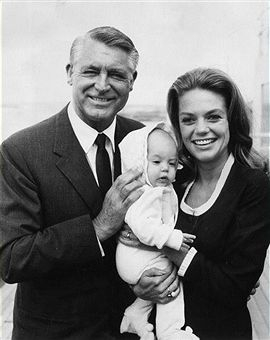Cary Grant, the dashing former acrobat whose gift for sophisticated comedy made him one of Hollywood's greatest stars, died of a stroke late Saturday night in Davenport, Iowa, where he had been scheduled to appear in a fund-raising event. He was 82 years old and lived in Beverly Hills, Calif.
Devastatingly handsome, practically imperturbable and as elegant as a Cole Porter lyric, Mr. Grant was a beloved figure in American film for over 30 years. From his first leading role in ''She Done Him Wrong'' (1933) - it was to Mr. Grant that Mae West uttered the famous, oft-misquoted line ''Why don't you come up sometime and see me?'' - through his last film, ''Walk Don't Run'' (1966), he seemed an ageless personification of debonair grace.
Mr. Grant made 72 films, including ''Sylvia Scarlett'' (1936), ''Topper'' (1937), ''Bringing Up Baby'' (1938), ''Holiday'' (1938), ''Gunga Din'' (1939), ''Only Angels Have Wings'' (1939), ''His Girl Friday'' (1940), ''The Philadelphia Story'' (1941), ''Arsenic and Old Lace'' (1944), ''Night and Day'' (1946), ''Notorious'' (1946), ''I Was a Male War Bride'' (1949), ''To Catch a Thief'' (1955), ''An Affair to Remember'' (1957), ''North by Northwest'' (1959), ''That Touch of Mink'' (1962) and ''Charade'' (1963).
Although he was twice nominated for an Academy Award - for his portrayal of a star-crossed newspaperman in ''Penny Serenade'' (1941) and for his impersonation of a London street tough in the 1944 film ''None but the Lonely Heart'' - it was not until 1970, after his career was over, that he received a special Oscar, inscribed ''to Cary Grant, for his unique mastery of the art of film acting.''
On screen, Mr. Grant seemed a born aristocrat. In fact, he grew up as plain Archie Leach, the only surviving child of a garment industry employee in the noisy British port of Bristol. He broke into show business as an acrobatic dancer with a troupe that toured vaudeville houses in Britain's provinces. Stilt walking was one of his specialties. Despite the cool reserve of Mr. Grant's film persona, there remained an understated physicality to his comedic approach.
One reason for Mr. Grant's enduring stardom was his distinctive presence, which The New York Times critic Vincent Canby once described as ''slim, buoyant, and projecting humorous intelligence.''
His personal style had some endearingly quirky ingredients, including a Cockney-flavored but cosmopolitan manner of speaking, a knack of lifting his eyebrows to register comic disbelief and a flair for managing to seem irresistible to the heroine while remaining rather passive and indifferent to her at the same time.
His acting style was crisp, clipped, economical. ''He never wasted a moment on the screen,'' the director Alan J. Pakula said in 1977. ''Every movement meant something to him.'' 'A Delicious Personality'
''Cary Grant, I think, is a personality functioning, a delicious personality who has learnt to do certain things marvellously well,'' Katharine Hepburn, who appeared opposite the actor in some of his best-remembered films, once said.
In a New York Times Magazine profile in 1977, Warren Hoge observed: ''Nobody doesn't like Cary Grant. He's a Hollywood monument, and nobody wants to tamper with that.''
In the profile, Mr. Hoge analyzed Mr. Grant's enduring appeal: ''While he is of the moment in a very literal way because of his exposure on late-night television movies and his resilient good looks, in another sense he survives the end of his own career in a manner that will probably never happen again. It will be different for the De Niros and Pacinos.''
''He was everyone's favorite uncle, brother, best friend and ideal lover: more than most stars he belonged to the public,'' David Shipman wrote in his book ''The Great Movie Stars: The Golden Years.'' ''He stayed young. We loved Gable, Crosby, Cooper as much, but they aged. The appeal of many of them lay in familiarity: unlike us and the world, Grant was changeless.''
Archibald Alexander Leach, who would attain world fame under the name Cary Grant, was born on Jan. 18, 1904, the son of Elias and Elsie Kingdom Leach. While still a schoolboy, he ran away from home and joined the Bob Pender troupe, a group of knockabout acrobats and pantomimists. With them he sang, danced, juggled and traveled to the United States in 1920.
He liked it here and decided to stay, supporting himself with odd jobs, such as selling painted neckties and working in a vaudeville mind-reading act. ''I used to earn $5 a day, $10 Saturdays and Sundays, as a stilt-walker at George Tilyou's Steeplechase Park in Coney Island,'' he recalled.
He returned to Britain in 1923, where he played small parts in several musical comedies. The producer Arthur Hammerstein saw him and brought him back to New York to play the juvenile in ''Golden Dawn,'' a musical with lyrics by Hammerstein's nephew Oscar Hammerstein 2d and music by Otto Harbach.
He later appeared in ''Polly'' with Fred Allen, in ''Wonderful Night,'' in ''Street Singer'' with Queenie Smith and in ''Boom-Boom'' with Jeanette MacDonald. Both Mr. Grant and Miss MacDonald were given screen tests during their run in ''Boom-Boom'' but nothing immediately came of it.
He then drove his second-hand Packard across the country to Hollywood. B. P. Schulberg, the president of Paramount Studios, saw a new screen test that Mr. Grant took and immediately offered him a contract.
Mr. Grant based his screen persona largely on Noel Coward, spending endless hours on practicing his walk, speaking voice and subtle facial expressions. ''I pretended to be somebody I wanted to be and I finally became that person,'' he once said. ''Or he became me. Or we met at some point. It's a relationship.''
He made his first film, ''This is the Night,'' in 1932, appearing opposite Charles Ruggles, Lily Damita and Roland Young. It was a good part, and Mr. Grant achieved a modest success. Chance to Play a Scoundrel
He appeared in several other films before ''She Done Him Wrong'' firmly established him as a star in 1933. In this film, Mr. Grant played a lawman, disguised as a church missionary, who wins the heart of Mae West's bawdy saloonkeeper. Because he was immediately cast in several other films that called for a breezy, laconic, impeccably well-bred young man, he welcomed the challenge of playing a scoundrel in the RKO Radio Production ''Sylvia Scarlett'' (1936) with Katharine Hepburn.
Mr. Grant's reputation as Hollywood's leading exponent of sophisticated comedy was solidified by a series of classic films in the late 1930's -''Topper'' (1937), ''The Awful Truth'' (1937) and ''Bringing Up Baby'' (1938). The 1938 film, directed by Howard Hawks, was particularly hilarious and teamed Mr. Grant with both a troublesome leopard and a wonderfully dizzy Miss Hepburn.
Now firmly established as one of Hollywood's reigning stars, Mr. Grant played in a succession of films, including ''Holiday'' (1938), ''Gunga Din'' (1939), ''Only Angels Have Wings'' (1939), ''His Girl Friday'' (1940) - a remake of ''The Front Page'' - ''My Favorite Wife'' (1940) and ''The Philadelphia Story'' (1941). Mr. Grant donated the $125,000 he received for his part in ''The Philadelphia Story'' to British War Relief. After the United States entered World War II, he was among the Hollywood stars who entertained the armed forces; he became an American citizen in 1942.
In 1941 Mr. Grant also appeared in ''Suspicion,'' the first of four suspense films he starred in under the direction of Alfred Hitchcock. The others, all top box-office money makers, were ''Notorious'' (1946), ''To Catch a Thief'' (1955) and ''North by Northwest' (1959). A
One of his most challenging dramatic roles was that of Ernie Mott, a Cockney drifter, in ''None but The Lonely Heart'' (1944), based on a novel by Richard Llewellyn. Clifford Odets wrote and directed the screen version, which depicted the slums of London with a vivid realism that some found oppressive, but Mr. Grant's performance was considered by many to be his finest in a dramatic role.
Mr. Grant was one of the first actors to declare personal independence from the studio system; he was a free agent by the early 1940's. By 1950, his price for a film had gone up to $300,000 and, as a result, he made fewer appearances. Although not all of his later films were critical successes, very few lost money. In his later life, Mr. Grant received 10 percent of the gross profits of any film he appeared in and reportedly owned his films outright after seven years. He chose roles sparingly and usually timed his releases to reach Radio City Music Hall for the holiday season.
Mr. Grant had been scheduled to appear at the Adler Theater in Davenport on Saturday night in what was billed as ''A Conversation With Cary Grant,'' which was suppposed to be part of a ''Festival of Trees'' celebration the town was sponsoring. He seemed healthy during rehearsals but then complained of headaches and nausea and was taken to St. Luke's Hospital.
Mr. Grant's first and third wives, Virginia Cherrill and Betsy Drake, were also actresses. His second wife was the heiress Barbara Hutton. He is survived by his fifth wife, Barbara Harris, whom he married in 1981, and his daughter.
ADVERTISEMENT
BY
Looking for more information?
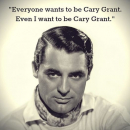
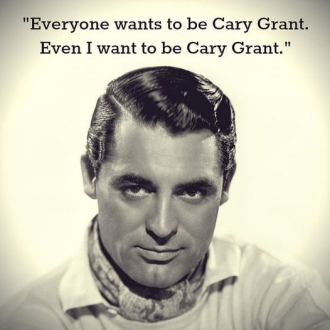
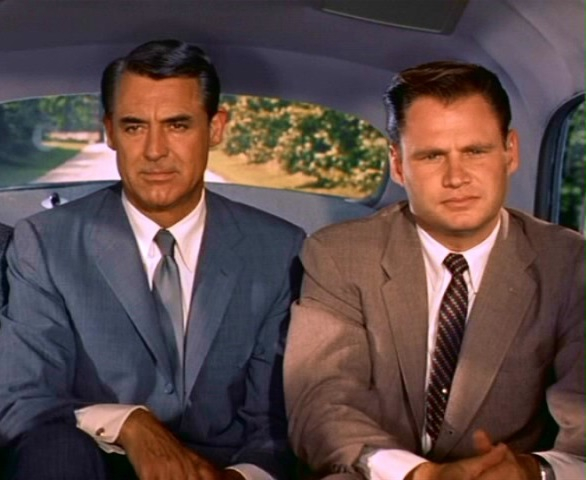
 Amanda S. Stevenson
Amanda S. Stevenson 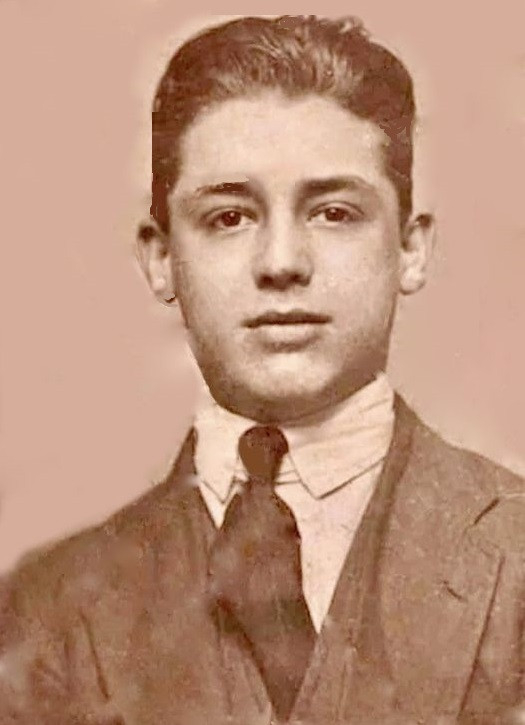
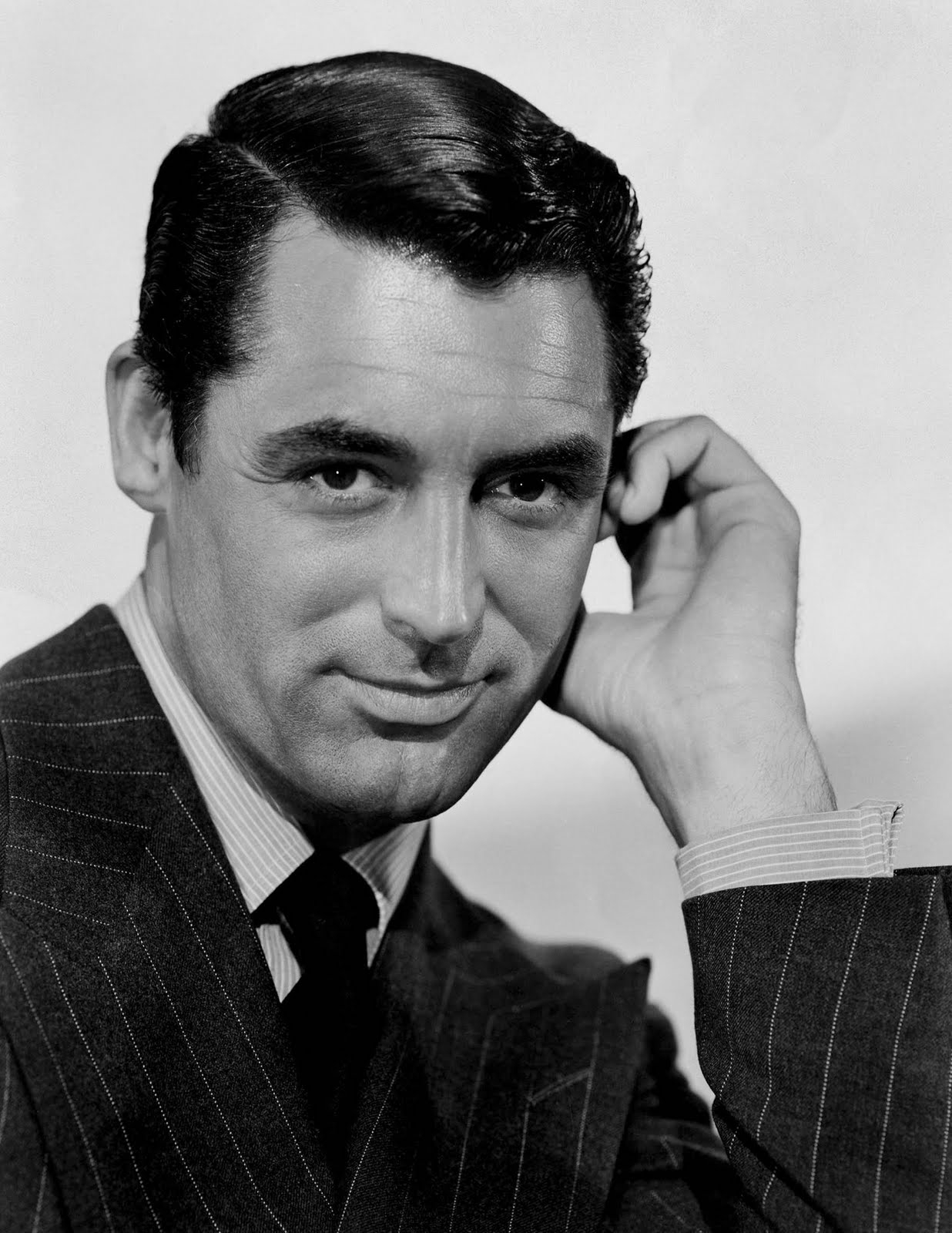
 Kathy Pinna
Kathy Pinna 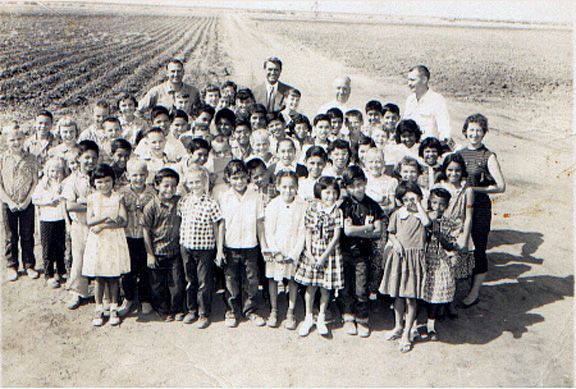
 Susan Harris
Susan Harris 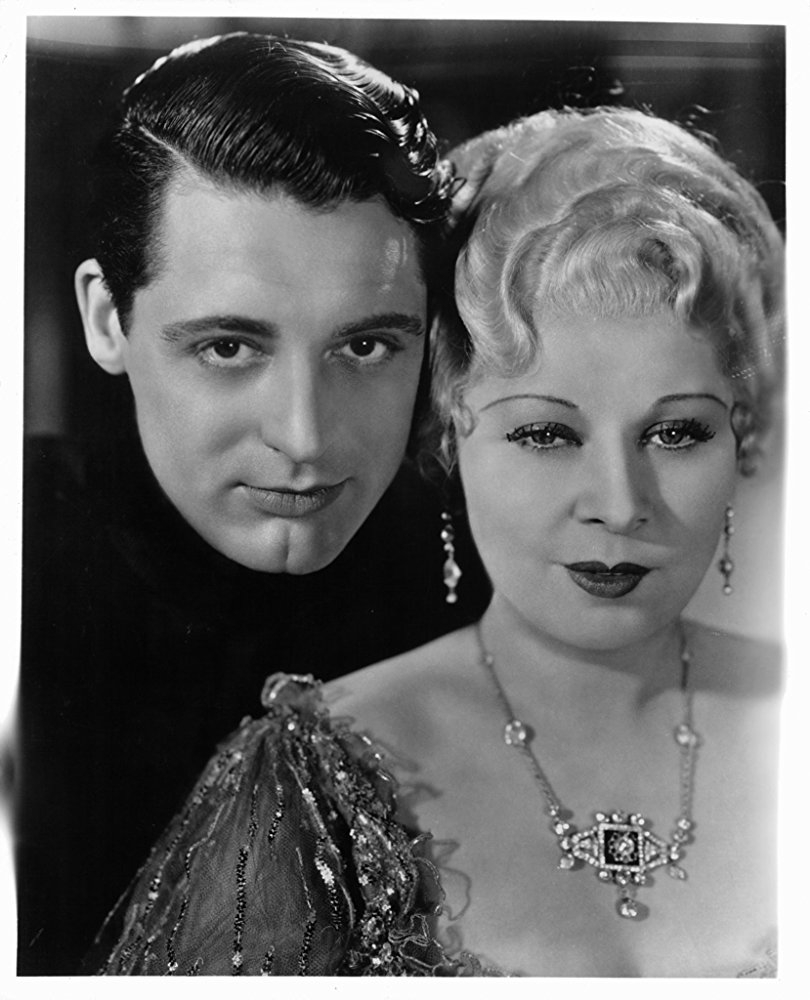
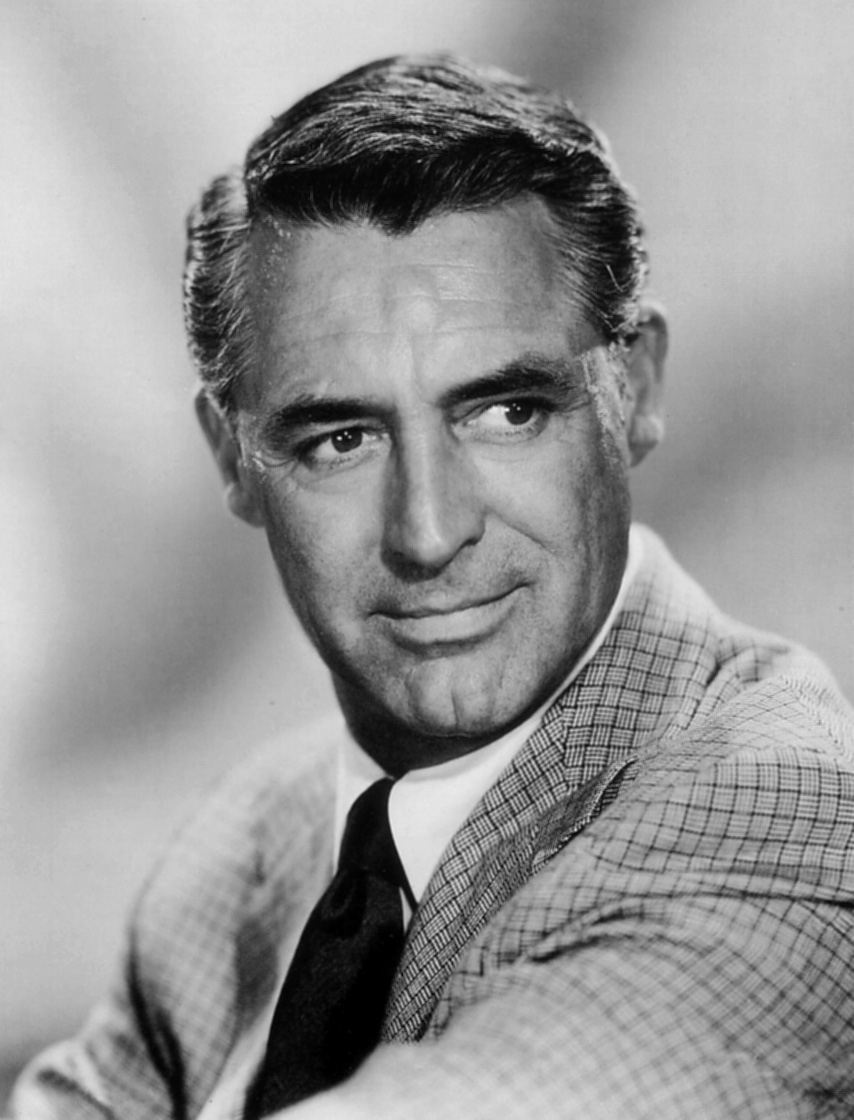
 Randle Conrad
Randle Conrad 
